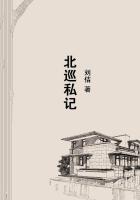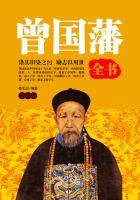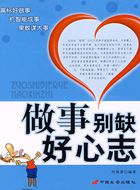The Pilgrim, having now floundered through the Slough of Despond, passed through the Wicket Gate, climbed the Hill Difficulty, and got safe by the Lions, entered the Palace Beautiful, and was "had in to the family." In plain words, Bunyan united himself to the little Christian brotherhood at Bedford, of which the former loose-living royalist major, Mr. Gifford, was the pastor, and was formally admitted into their society. In Gifford we recognize the prototype of the Evangelist of "The Pilgrim's Progress," while the Prudence, Piety, and Charity of Bunyan's immortal narrative had their human representatives in devout female members of the congregation, known in their little Bedford world as Sister Bosworth, Sister Munnes, and Sister Fenne, three of the poor women whose pleasant words on the things of God, as they sat at a doorway in the sun, "as if joy did make them speak," had first opened Bunyan's eyes to his spiritual ignorance. He was received into the church by baptism, which, according to his earliest biographer, Charles Doe "the Struggler," was performed publicly by Mr. Gifford, in the river Ouse, the "Bedford river" into which Bunyan tells us he once fell out of a boat, and barely escaped drowning. This was about the year 1653. The exact date is uncertain. Bunyan never mentions his baptism himself, and the church books of Gifford's congregation do not commence till May, 1656, the year after Gifford's death. He was also admitted to the Holy Communion, which for want, as he deemed, of due reverence in his first approach to it, became the occasion of a temporary revival of his old temptations. While actually at the Lord's Table he was "forced to bend himself to pray" to be kept from uttering blasphemies against the ordinance itself, and cursing his fellow communicants. For three-quarters of a year he could "never have rest or ease" from this shocking perversity. The constant strain of beating off this persistent temptation seriously affected his health. "Captain Consumption," who carried off his own "Mr. Badman," threatened his life. But his naturally robust constitution "routed his forces,"and brought him through what at one time he anticipated would prove a fatal illness. Again and again, during his period of indisposition, the Tempter took advantage of his bodily weakness to ply him with his former despairing questionings as to his spiritual state. That seemed as bad as bad could be. "Live he must not; die he dare not." He was repeatedly near giving up all for lost. But a few words of Scripture brought to his mind would revive his drooping spirits, with a natural reaction on his physical health, and he became "well both in body and mind at once." "My sickness did presently vanish, and I walked comfortably in my work for God again." At another time, after three or four days of deep dejection, some words from the Epistle to the Hebrews "came bolting in upon him," and sealed his sense of acceptance with an assurance he never afterwards entirely lost. "Then with joy I told my wife, 'Now I know, I know.' That night was a good night to me; I never had but few better. I could scarce lie in my bed for joy and peace and triumph through Christ."During this time Bunyan, though a member of the Bedford congregation, continued to reside at Elstow, in the little thatched wayside tenement, with its lean-to forge at one end, already mentioned, which is still pointed out as "Bunyan's Cottage." There his two children, Mary, his passionately loved blind daughter, and Elizabeth were born; the one in 1650, and the other in 1654. It was probably in the next year, 1655, that he finally quitted his native village and took up his residence in Bedford, and became a deacon of the congregation. About this time also he must have lost the wife to whom he owed so much. Bunyan does not mention the event, and our only knowledge of it is from the conversation of his second wife, Elizabeth, with Sir Matthew Hale. He sustained also an even greater loss in the death of his friend and comrade, Mr. Gifford, who died in September, 1655. The latter was succeeded by a young man named John Burton, of very delicate health, who was taken by death from his congregation, by whom he was much beloved, in September, 1660, four months after the restoration of the Monarchy and the Church. Burton thoroughly appreciated Bunyan's gifts, and stood sponsor for him on the publication of his first printed work. This was a momentous year for Bunyan, for in it Dr.
Brown has shown, by a "comparison of dates," that we may probably place the beginning of Bunyan's ministerial life. Bunyan was now in his twenty-seventh year, in the prime of his manly vigour, with a vivid imagination, ready speech, minute textual knowledge of the Bible, and an experience of temptation and the wiles of the evil one, such as few Christians of double his years have ever reached.















